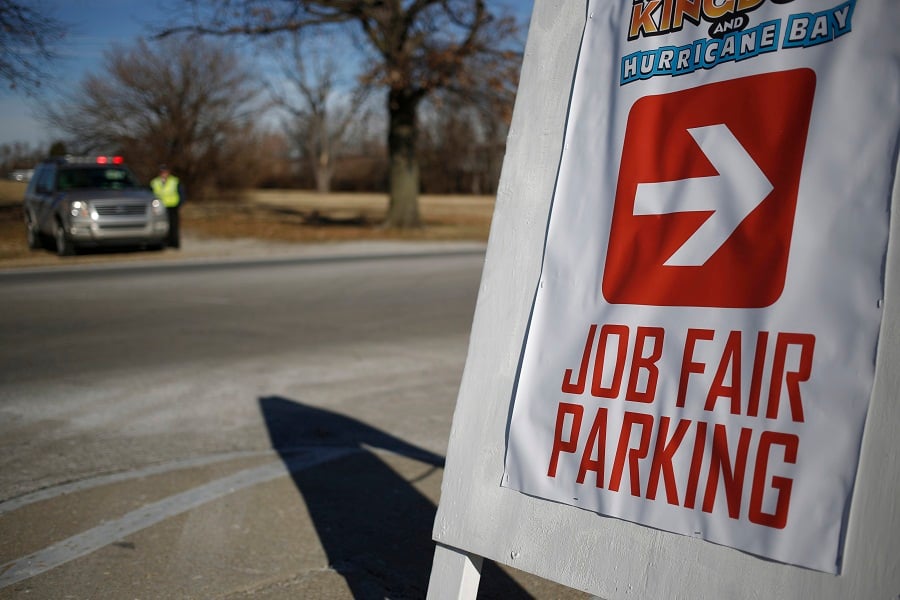The best part about Friday's
complete stinker of a jobs report is that it came on Good Friday when the stock market was closed.
With any luck, by the time the market re-opens on Monday, the report of a stunningly-low 126,000 jobs created in March will be fully absorbed and diluted along with a weekend full of marshmallow bunnies, chocolate eggs and whatever other news might develop.
Otherwise, it's a safe bet the stock market would be in bit of a tizzy right now as investors try to adjust to any or all of the following questions:
• Does the fact that the
consensus of analysts' estimates for February jobs missed the mark by almost half mean the economy is in much worse shape than anyone thought?
• Does this mean the Fed will further delay its long-awaited first interest rate hike since 2006?
• Could a delayed rate hike be good for stocks, because it means more of the same wild ride on risk assets with nowhere else to hide?
• And how could all those smart economists get their forecasts so wrong?
Not wanting to
sound like former General Electric chief executive Jack Welch, it does help that such a bad report came out on a day when the stock market is closed.
But, as precedent goes, releasing a bad jobs report for Good Friday hasn't always been forgotten by Monday morning.
According to Robert Hanna, chief executive of QuantifiableEdges, blogging on Thursday,
the stock market doesn't appear to forget that easily, which means Monday could still be a bumpy ride for investors.
Since 1980, seven out of the 10 times a jobs report landed on Good Friday, the stock market finished up or down between 0.79% and 2.12% the following Monday.
TRUE MESSAGE
But beyond whatever might happen on Monday, the real focus should be around what the jobs report is telegraphing.
“All the other data points throughout the U.S. economy have been contracting, and payroll numbers were the outlier,” said Bob Rice, managing director at Tangent Capital.
“Every one of these damn reports has turned into an excuse-fest blaming it on the weather, or the strong dollar or the price of oil,” he added. “All those things may be true, but a robust economy would be able to shake them off.”
Instead of recognizing realities like a record high median price-to-earnings ratio for the S&P 500 Index, or the fact that every economist whiffed on Friday's earnings report, the mantra slips back into the rut of what Mr. Rice calls “the bad-news-is-good-news business.”
“In a normal environment, this jobs report would be very bad news,” he said. “The market is already anticipating a robust economic rebound and this is not it.”
Which leads us right into the bad-news-is-good-news reflex, where it can be rationalized that maybe the Fed won't raise rates until the Fall, or even next year.
And that means even more access to the kind of
easy money that has gotten us this far since the March 2009 bottom.
Delaying that rate hike might prevent the dollar from getting
even stronger against global currencies that are moving in the opposite direction as fast as is economically possible.
The upside, according to Paul Schatz, president of Heritage Capital, is that there are no alternatives to more of the same.
“The Bank of Japan is already in quantitative easing mode and Europe has started quantitative easing, so as long as the dollar stays relatively strong it will continue to drive money into the U.S.,” he said. “Where else are you going to put your money right now?”
Meanwhile, the stock market has been essentially flat since mid-December, and the economy is still unable to eke out even 2% worth of growth.
On second thought, it might take a lot more than chocolate eggs to fully dilute the realities of risks stacked up against expected returns in this market.







